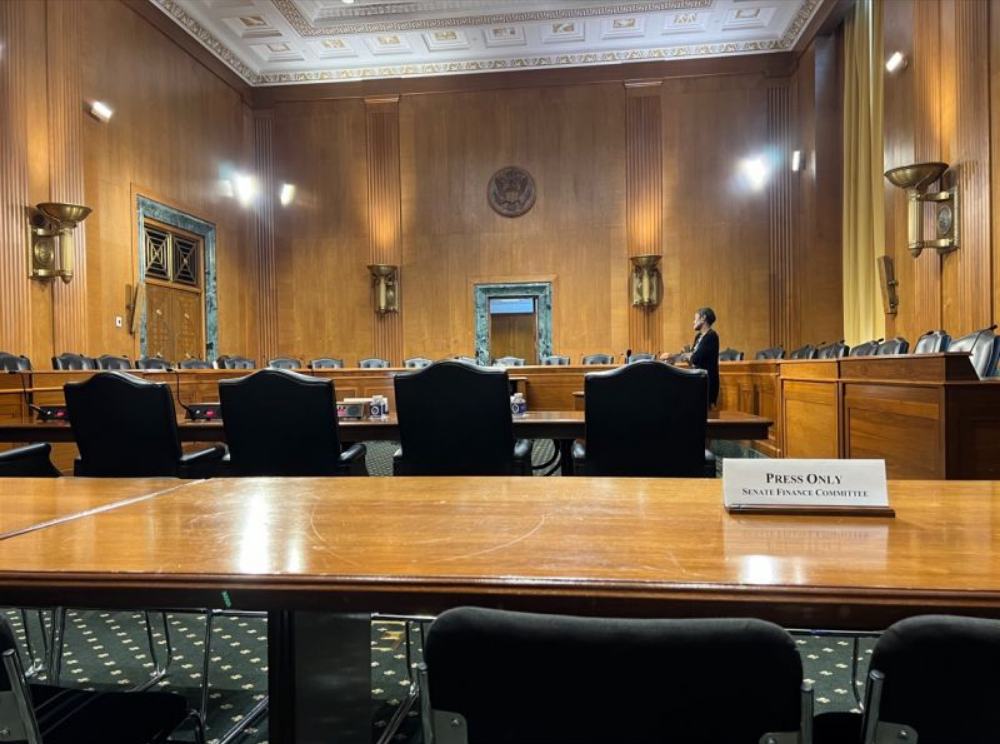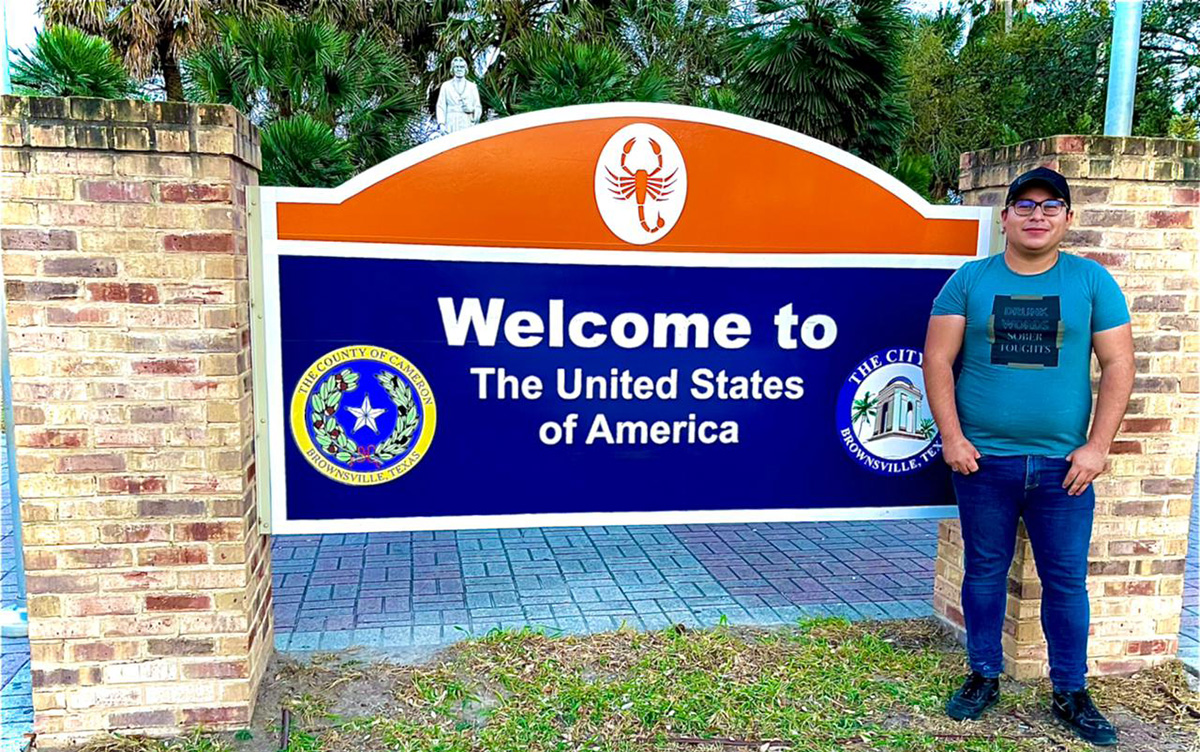National
State Dept. denounces ‘rising violence’ against LGBT people worldwide
Nigeria, Uganda, Russia among countries criticized


U.S. Secretary of State John Kerry participates in an LGBT ministerial event in New York last September during the U.N. General Assembly. (Photo courtesy of the State Department.)
LGBT rights feature prominently in the 2013 Human Rights Report the U.S. State Department released on Thursday.
The report specifically references draconian anti-gay measures that Ugandan and Nigerian lawmakers approved last year – their country’s presidents signed them into law earlier this week and last month respectively. The State Department also notes up to 200 people may remain incarcerated in Cameroon under the country’s sodomy law.
The report further highlights Russian President Vladimir Putin last June signed a bill into law that bans gay propaganda to minors.
“From Nigeria to Russia to Iran, indeed in some 80 countries the world over, LGBT communities face discriminatory laws and practices that attack their basic human dignity and undermine their safety,” said Secretary of State John Kerry as he unveiled the report in D.C. “We are seeing new laws like the Anti-Homosexuality Bill enacted by Uganda and signed into law by President Museveni earlier this week, which not only makes criminals of people for who they are, but punishes those who defend the human rights that are universal birthright.”
Kerry further stressed the aforementioned anti-gay laws “contribute to a global trend of rising violence and discrimination against LGBT persons and their supporters.”
“They are an affront to every reasonable conscience,” he said.
Individual country reports also contain LGBT-specific information.
The report notes the Indian government challenged a December ruling from the country’s highest court that recriminalized homosexuality. A Belizean LGBT advocacy group continued to challenge the Central American country’s colonial-era sodomy law in 2013.
The State Department highlighted Chilean authorities “appeared reluctant” to investigate and prosecute anti-LGBT attacks, even though the South American country’s hate crimes law includes both sexual orientation and gender identity and expression.
The report also noted Mariela Castro, daughter of Cuban President Raúl Castro, “continued to be outspoken in promoting the rights of lesbian, gay, bisexual and transgender (LGBT) persons” in Cuba in 2013. Ignacio Estrada Cepero, founder of the Cuban League Against AIDS, and U.S. Rep. Ileana Ros-Lehtinen (R-Fla.) are among those who continue to criticize Mariela Castro and her father’s government over the country’s human rights record.
“Non-government rights activists asserted that the government had not done enough to stop harassment of LGBT persons,” reads the State Department report. “Several unrecognized NGOs promoted LGBT issues and faced government criticism, not for their promotion of LGBT issues, but for their independence from official government institutions.”
Uzra Zeya, acting assistant secretary of the Bureau of Democracy, Human Rights and Labor at the State Department, on Thursday noted a group of partygoers stabbed a cross-dressing Jamaican teenager to death outside Montego Bay last July.
“LGBT conduct is criminalized in nearly 80 countries worldwide,” said Zeya. “Even when these laws are not enforced, their mere existence creates a climate of fear and sends a message to the broader population that it’s permissible to discriminate against LGBT persons in housing, in employment, in education and that it’s permissible to beat or kill or torture someone simply because of their sexual orientation or gender identity.”
The State Department issued the report three days after the Obama administration announced it had begun a review of its relationship with Uganda after the country’s president, Yoweri Museveni, signed the Anti-Homosexuality Bill into law.
The State Department’s Global Equality Fund since 2011 has spent more than $4 million in 25 countries to directly support LGBT advocates and underrepresented groups. USAID last April unveiled a public-private partnership with the Swedish International Development Corporation Agency, the Gay and Lesbian Victory Institute and other groups that will $12 million over the next four years to LGBT activist organizations in Honduras and other developing countries – the initiative’s first two trainings took place in the Colombian cities of Bogotá and Cartagena last May and August respectively.
Seven LGBT rights advocates from Argentina, Chile, Bolivia, Perú, Ecuador, Costa Rica and the Dominican Republic recently visited D.C., New York, Texas and California as part of the State Department’s International Visitor Leadership Program. Activists from Latvia, Serbia, Russia, Georgia, Zimbabwe, Kenya and other countries have traveled to the U.S. over the last year.
“We agree when Kerry said, ‘the United States government best advances its national interests when its policy choices are rooted in consistent adherence to human rights principles,” said Robyn Lieberman of Human Rights First after the State Department issued its report. “As the secretary (Kerry) said, ‘countries that deny human rights and human dignity threaten our interests, and countries that practice these rights create opportunities.’ We agree and believe that the publication of the Country Reports should serve to inform the formation of policies that can contribute to solutions that the human rights violations described in the report are so badly in need of.”
Arizona
Ariz. governor vetoes anti-transgender, Ten Commandments bill
Katie Hobbs has pledged to reject anti-LGBTQ bills that reach her desk

BY CAITLIN SIEVERS | A slew of Republican bills, including those that would have allowed discrimination against transgender people and would have given public school teachers a green light to post the Ten Commandments in their classrooms, were vetoed by Gov. Katie Hobbs on Tuesday.
Hobbs, who has made it clear that she’ll use her veto power on any bills that don’t have bipartisan support — and especially ones that discriminate against the LGBTQ community — vetoed 13 bills, bringing her count for this year to 42.
Republicans responded with obvious outrage to Hobbs’s veto of their “Arizona Women’s Bill of Rights,” which would have eliminated any mention of gender in state law, replacing it with a strict and inflexible definition of biological sex. The bill would have called for the separation of sports teams, locker rooms, bathrooms, and even domestic violence shelters and sexual assault crisis centers by biological sex, not gender identity, green-lighting discrimination against trans Arizonans.
“As I have said time and again, I will not sign legislation that attacks Arizonans,” Hobbs wrote in a brief letter explaining why she vetoed Senate Bill 1628.
The Arizona Senate Republicans’ response to the veto was filled with discriminatory language about trans people and accused them of merely pretending to be a gender different than they were assigned at birth.
“With the radical Left attempting to force upon society the notion that science doesn’t matter, and biological males can be considered females if they ‘feel’ like they are, Katie Hobbs and Democrats at the Arizona State Legislature are showing their irresponsible disregard for the safety and well-being of women and girls in our state by killing the Arizona Women’s Bill of Rights,” Senate Republicans wrote in a statement.
The Senate Republicans went on to accuse the Democrats who voted against the bill of endangering women.
“Instead of helping these confused boys and men, Democrats are only fueling the dysfunction by pretending biological sex doesn’t matter,” Senate President Warren Petersen said in the statement. “Our daughters, granddaughters, nieces, and neighbors are growing up in a dangerous time where they are living with an increased risk of being victimized in public bathrooms, showers, and locker rooms because Democrats are now welcoming biological males into what used to be traditionally safe, single-sex spaces.”
But trans advocates say, and at least one study has found, that there’s no evidence allowing trans people to use the bathroom that aligns with their identity makes those spaces less safe for everyone else who uses them.
In the statement, the bill’s sponsor, Sen. Sine Kerr (R-Buckeye), claimed that the bill would have stopped trans girls from competing in girls sports, something she said gives them an unfair advantage. But Republicans already passed a law to do just that in 2022, when Republican Gov. Doug Ducey was still in office, though that law is not currently being enforced amidst a court challenge filed by two trans athletes.
Republicans also clapped back at Hobbs’ veto of Senate Bill 1151, which would have allowed teachers or administrators to teach or post the Ten Commandments in public school classrooms, a measure that some Republicans even questioned as possibly unconstitutional.
In a statement, the bill’s sponsor, Sen. Anthony Kern (R-Glendale), accused Hobbs of “abandoning God” with her veto.
“As society increasingly strays away from God and the moral principles our nation was founded upon, Katie Hobbs is contributing to the cultural degradation within Arizona by vetoing legislation today that would have allowed public schools to include the Ten Commandments in classrooms,” Kern said in the statement.
In her veto letter, Hobbs said she questioned the constitutionality of the bill, and also called it unnecessary. During discussion of the bill in March, several critics pointed out that posting the Ten Commandments in public school classrooms, tenets of Judeo-Christian religions, might make children whose families practice other religions feel uncomfortable.
“Sadly, Katie Hobbs’ veto is a prime example of Democrats’ efforts to push state-sponsored atheism while robbing Arizona’s children of the opportunity to flourish with a healthy moral compass,” Kern said.
Another Republican proposal on Hobbs’s veto list was Senate Bill 1097, which would have made school board candidates declare a party affiliation. School board races in Arizona are currently nonpartisan.
“This bill will further the politicization and polarization of Arizona’s school district governing boards whose focus should remain on making the best decisions for students,” Hobbs wrote in her veto letter. “Partisan politics do not belong in Arizona’s schools.”
******************************************************************************************

Caitlin joined the Arizona Mirror in 2022 with almost 10 years of experience as a reporter and editor, holding local government leaders accountable from newsrooms across the West and Midwest. She’s won statewide awards in Nebraska, Indiana and Wisconsin for reporting, photography and commentary.
******************************************************************************************
The preceding piece was previously published by the Arizona Mirror and is republished with permission.
Amplifying the voices of Arizonans whose stories are unheard; shining a light on the relationships between people, power and policy; and holding public officials to account.
Arizona Mirror is part of States Newsroom, the nation’s largest state-focused nonprofit news organization.
National
Senate committee: Republican attorneys general abused power demanding trans medical records
AGs used ‘abusive legal demands’

In a 10-page report released on Tuesday by staff for the Democratic majority of the U.S. Senate Finance Committee, the Republican attorneys general of Tennessee, Missouri, Indiana, and Texas are accused of using “abusive legal demands” to collect the medical records of transgender patients in furtherance of the attorneys general’ “ideological and political goals.”
According to the document, which is titled “How State Attorneys General Target
Transgender Youth and Adults by Weaponizing the Medicaid Program and their Health Oversight Authority,” the attorneys general used specious or misleading legal pretexts to justify their issuance of civil investigative demands to healthcare providers.
For example, the office of Tennessee Attorney General Jonathan Skrmetti framed the request as part of a probe into the potential misuse of Medicaid funds, while the offices of Indiana Attorney General Todd Rokita and Missouri Attorney General Andrew Bailey cited suspected violations of consumer protection laws. The office of Texas Attorney General Ken Paxton, which demanded records from “at least two hospitals located in Texas as well as at least two medical providers” in Washington and Georgia, did not disclose why the requests were issued.
The report found that information requested by the attorneys general’s offices included “invasive items such as unredacted physical and mental health records, photographs of children’s bodies, correspondence to hospitals’ general email addresses for LGBTQIA+ patients, and lists of people referred for transgender health care.”
In response, and in what the committee called “a grave violation of patient privacy and trust,” some providers turned over “near-complete, patient-identifiable” information while others used legal processes available to them such as privacy protections in the Health Insurance Portability and Accountability Act to share fewer details with the attorneys general’s offices.
The report noted that Vanderbilt University Medical Center in Nashville had “failed to object in any material manner to the Tennessee attorney general’s sweeping request and then caused undue terror to young patients and their families by supplying the Tennessee attorney general with some of the records requested and then, again, by erroneously notifying some patients of medical record disclosures that had not occurred.”
News concerning Vanderbilt’s receipt of and compliance with the demands from Skrmetti’s office was made public in June, sparking widespread concern and panic among many of the center’s trans patients and their families. Some, according to the report, experienced suicidal ideation and emotional distress including depression and anxiety.
A plaintiffs’ lawsuit was filed in July over VUMC’s failure to redact personally identifying information from the medical records. The following month, the center disclosed plans to comply with an investigation by the U.S. Department of Health and Human Services Office of Civil Rights.
In a statement to NBC News, Michael Regier, the medical center’s general counsel and secretary, said the hospital disputes the findings published in the committee’s report and had submitted “a detailed letter outlining our concerns about its proposed findings before it was released.”
“We made every effort to both protect our patients and follow the law,” Regier said, adding that “At no point did we violate privacy laws, and we strongly disagree with any suggestion that we did.”
However, the committee’s report notes that by contrast, providers in other states like the Washington University School of Medicine in St. Louis refused to turn over patient records, citing privacy concerns and HIPPA regulations. And after staff for U.S. Sen. Ron Wyden (D-Ore.), the committee chair, had requested and reviewed copies of correspondence between VUMC and the Tennessee attorney general’s office, they concluded that the documentation “sheds light, for the first time, on the full extent of VUMC’s acute and repeated failures to protect its patients.”
For example, the report explains that after Skrmetti’s office issued the initial request to VUMC, it followed up with two additional civil investigative demands for “confidential information across 18 categories without any bounds on the number of patients or people implicated” ranging from “employment contracts for physicians to volunteer agreements for the
VUMC Trans Buddy Program to communications to and from a general email address.”
In response, the hospital shared “65,000 pages of documents, including the medical records of 82 transgender patients.” The information that was provided pursuant to receipt of Skrmetti’s office’s third civil investigative demand is unknown.
Related:

The U.S. has granted asylum to a Guatemalan LGBTQ activist who fled his country in 2019.
Estuardo Cifuentes and his partner ran a digital marketing and advertising business in Guatemala City.
He previously told the Washington Blade that gang members extorted from them. Cifuentes said they closed their business after they attacked them.
Cifuentes told the Blade that Guatemalan police officers attacked him in front of their home when he tried to kiss his partner. Cifuentes said the officers tried to kidnap him and one of them shot at him. He told the Blade that authorities placed him under surveillance after the incident and private cars drove past his home.
Cifuentes arrived in Matamoros, a Mexican border city that is across the Rio Grande from Brownsville, Texas, in June 2019. He asked for asylum in the U.S. based on the persecution he suffered in Guatemala because of his sexual orientation.
The Trump administration forced Cifuentes to pursue his asylum case from Mexico under its Migrant Protection Protocols program that became known as the “remain in Mexico” policy.
Cifuentes while in Matamoros ran Rainbow Bridge Asylum Seekers, a program for LGBTQ asylum seekers and migrants that the Resource Center Matamoros, a group that provides assistance to asylum seekers and migrants in the Mexican border city, helped create.
The Biden-Harris administration in January 2021 suspended enrollment in MPP. Cifuentes entered the U.S. on March 3, 2021.
“We are profoundly relieved and grateful that my husband and I have been officially recognized as asylees in the United States,” Cifuentes told the Blade on Monday in an email. “This result marks the end of a long and painful fight against the persecution that we faced in Guatemala because of our sexual orientation.”
Vice President Kamala Harris is among those who have said discrimination and violence based on sexual orientation are among the root causes of migration from Guatemala and other countries in Central America.
Cifuentes is now the client services manager for Lawyers for Good Government’s Project Corazón, a campaign that works “hard to reunite and defend the rights of families impacted by inhumane immigration policies.” He told the Blade he will continue to help LGBTQ asylum seekers and migrants.
“In this new chapter of our lives, we pledge to work hard to support others in similar situations and to contribute to the broader fight for the rights and acceptance of the LGBTQ+ migrant community,” said Cifuentes. “We are hopeful that our story will serve as a call to action to confront and end persecution based on gender identity and sexual orientation.”




















